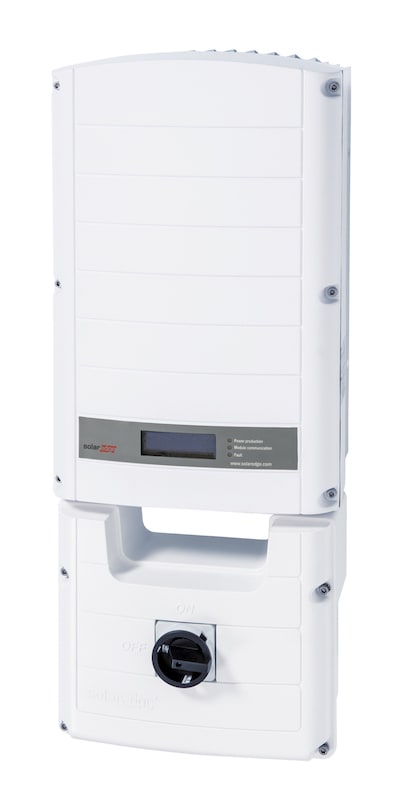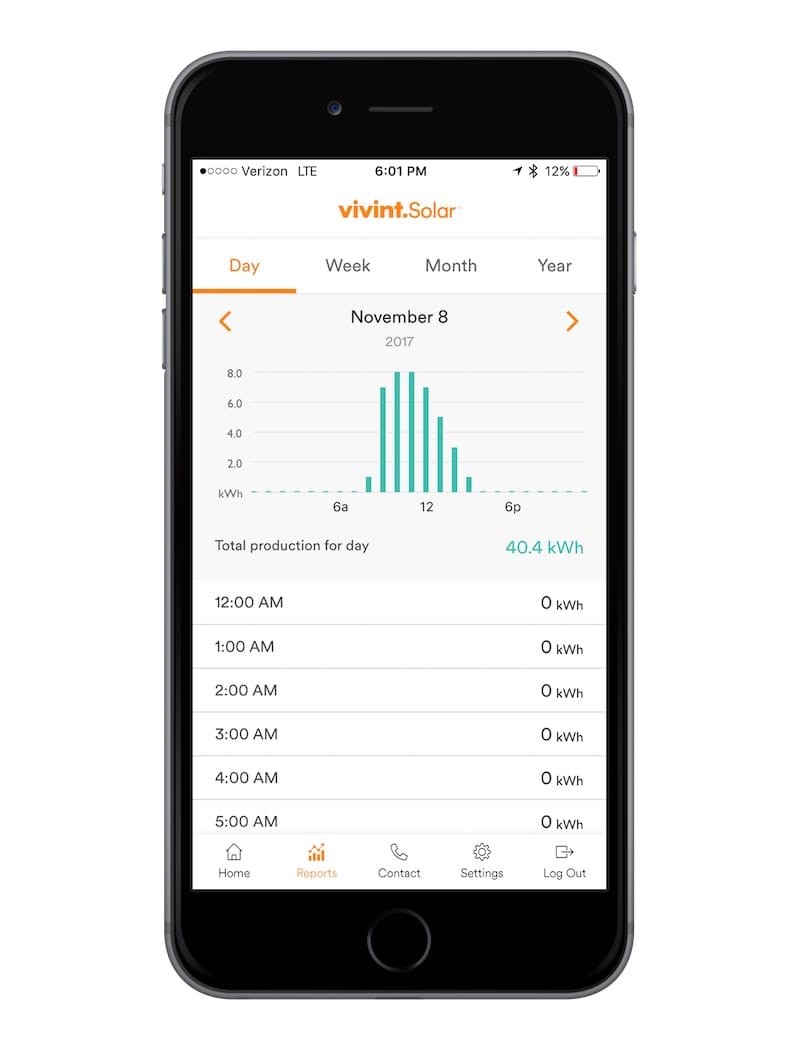How Do You Know if Solar Panels Are Working
How to tell if your solar panels are working
You've added rooftop solar panels to your domicile and are on the path to condign a smart energy producer and consumer. Way to become!
Solar panels require very niggling maintenance over their usable life and are built to final for decades. That said, you will undoubtedly want to cheque on your solar panels from time to time to make sure they are working properly. In this post, we will follow Victoria, a homeowner who purchased a solar energy organization a year ago, as she learns how to ensure her solar panels are working.
Know Your Inverter
If solar panels are the brawn of your solar free energy organization, so the inverter is the encephalon. Your inverter makes the direct current (DC) produced past your solar panels useable as alternating current (Ac) for your home. The inverter is the outset identify to check to make sure your solar energy system is working properly.
There are two types of inverters -- string inverters and micro-inverters. The easiest fashion to determine which type of inverter you have is to check the paperwork from your solar provider. The tell-tale sign of string inverters is their size; they are much larger than micro-inverters. Hither'south an example of a common string inverter that tin be institute on the side of the habitation:
 Image Courtesy of SolarEdge. SolarEdge SE3000A Inverter pictured.
Image Courtesy of SolarEdge. SolarEdge SE3000A Inverter pictured.
And if you don't have one of those, you probably take micro-inverters, small inverters that are attached on the dorsum of each private solar panel on your roof. Micro-inverters tend to come paired with monitoring software that your provider may make bachelor to yous (more than on that later). Again, cheque the paperwork from your solar energy system provider or call them and inquire to exist sure.
Now permit'southward see what type of inverter Victoria has on her solar energy organization.
Victoria has a string inverter on her rooftop organization, which means all of her solar panels are wired together and the electricity then flows through a single inverter.
With either type of inverter, a solar console failure will result in fewer kilowatt hours (kWh) of electricity product over the course of a day. A little shading for a few days isn't a huge deal, but if you lot have 1 or more panels that take a technical issue, it is something you will want to go fixed sooner than later.
Monitor Your Production
Now that you know which inverter you have, how exactly practise y'all find out how many kWh of solar power your panels are pumping out at whatever given time? This is where monitoring comes in, and the exact method you volition apply depends on your solar installer and your specific hardware.
Most solar companies provide some kind of monitor for the systems they install, which may be a concrete monitor at your dwelling house or an app yous can access online. If your provider doesn't offer a monitoring service, yous can track solar free energy product through the inverter itself. If yous take micro-inverters, your provider will need to provide an app or website to admission the inverter data.
If you've had your solar panels for a while, you can compare your output to previous weeks or months to monitor production. If your panels are new, yous should employ the monthly kWh estimate that your solar panel provider gave you for comparison.
Let'south have a look at Victoria's system. Her solar provider has an online hub she tin log into and see her home's solar production downwards to the hr:
 Solar Product Monitoring on Vivint Solar App.
Solar Product Monitoring on Vivint Solar App.
Victoria'due south panels are almost a year old and she has been monitoring her production regularly through the hub. During sunny springtime months, Victoria's panels usually generate about forty kWh each week, but this May she notices her panels are only kicking out 25 kWh each week.
Basic Troubleshooting
It'southward been sunny most days this calendar month, then Victoria suspects something is wrong with her solar panels. Victoria isn't an electrician and she's not comfortable climbing onto her roof, simply there are still some quick troubleshooting steps she tin can accept before reporting a problem.
Victoria has already taken the first step, which is to check the weather. If her panels are producing less and it'due south been clouded, or her panels have had snow accumulation some of the calendar month, that would likely account for the difference in electricity generation. In that location'due south been ample sunlight in Victoria'south neighborhood and then she's going to the side by side pace: to cheque for anything blocking the panels.
Solar panels require very piddling maintenance, but if debris blew onto Victoria'due south roof during a storm, something could be covering all or part of a panel. Upon closer inspection, Victoria sees that i of her trees is taller than it was terminal year - the leaves have come out for bound and some of her panels are now partially shaded in the afternoon. Because Victoria has a string inverter, she knows that small shade surface area could touch on more than merely the shaded panels. Victoria pulls out the pruners and her system is up to 42 kWh the following week.
-
Cheque the weather
-
Look for and clear droppings
-
Watch for shade on your panels
Who to Call
If the troubleshooting tips above didn't solve your problem, nosotros recommend going online to your solar provider'southward website to run across if they have whatsoever additional troubleshooting options to follow. If they don't, information technology's time to call your solar provider. If you own your solar panels and they are less than 10 years old, they are likely covered by your provider's warranty. If you are a Solar Lease or PPA client, your solar provider is responsible for maintaining the panels and ensuring their production. The solar visitor should send a technician to examine your panels and ready any problems.
If your panels are Non covered under your solar provider's warranty whatever longer, your next step should be to find out if they're covered by the manufacturer's warranty, which is commonly 25 years. Contact the manufacturer and find out if they have whatever specific requirements for warranty claims before you contact an electrician. In one case you understand their procedure, y'all can telephone call a professional to come examine your panels.
Rest Like shooting fish in a barrel
Now that you know the basics of monitoring your solar system's energy production, you can relax, knowing that your panels are doing their all-time work. If you practise notice a drop off, understanding your inverter blazon tin can help yous troubleshoot. And if in that location is a problem with the arrangement, now y'all know where to turn.
Of course, this is ane reason information technology'southward so important to cull a solar installer with good customer service and a history of success - hear from a few of our customers about their experience.
Source: https://www.vivintsolar.com/learning-center/how-to-tell-if-your-solar-panels-are-working
0 Response to "How Do You Know if Solar Panels Are Working"
Post a Comment